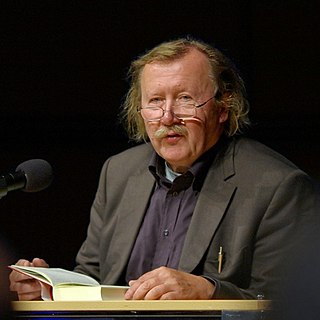A Quote by Frederick Lenz
Power doesn't make you happy. Actually, power without knowledge and balance is problematic. Power is something that will automatically follow when you have knowledge. The two are really the same, in a certain sense.
Related Quotes
We should not be content to say that power has a need for such-and-such a discovery, such-and-such a form of knowledge, but we should add that the exercise of power itself creates and causes to emerge new objects of knowledge and accumulates new bodies of information. ... The exercise of power perpetually creates knowledge and, conversely, knowledge constantly induces effects of power. ... It is not possible for power to be exercised without knowledge, it is impossible for knowledge not to engender power.
But you must not change one thing, one pebble, one grain of sand, until you know what good and evil will follow on that act. The world is in balance, in Equilibrium. A wizard's power of Changing and Summoning can shake the balance of the world. It is dangerous, that power...It must follow knowledge, and serve need.
Without the power of intelligence there is no capacity for spiritual knowledge; and without spiritual knowledge we cannot have the faith from which springs that hope whereby we grasp things of the future as though they were present. Without the power of desire there is no longing, and so no love, which is the issue of longing; for the property of desire is to love something. And without the incensive power, intensifying the desire for union with what is loved, there can be no peace, for peace is truly the complete and undisturbed possession of what is desired.
We have heard of a Society for the Diffusion of Useful Knowledge. It is said that knowledge is power, and the like. Methinks there is equal need of a Society for the Diffusion of Useful Ignorance, what we will call Beautiful Knowledge, a knowledge useful in a higher sense: for what is most of our boasted so-called knowledge but a conceit that we know something, which robs us of the advantage of our actual ignorance? What we call knowledge is often our positive ignorance; ignorance our negative knowledge.
The violent, antirationalistic impulse in Western countries is reacting to an intellectual state of affairs in which all thinking has become strategy; this impulse shows a disgust for a certain form of self-preservation. It is a sensitive shivering from the cold breath of a reality where knowledge is power and power is knowledge.
At the heart of capitalism is the unification of knowledge and power. As Friedrich Hayek, the leader of the Austrian school of economics, put it, "To assume all the knowledge to be given to a single mind... is to disregard everything that is important and significant in the real world." Because knowledge is dispersed, power must be as well.































